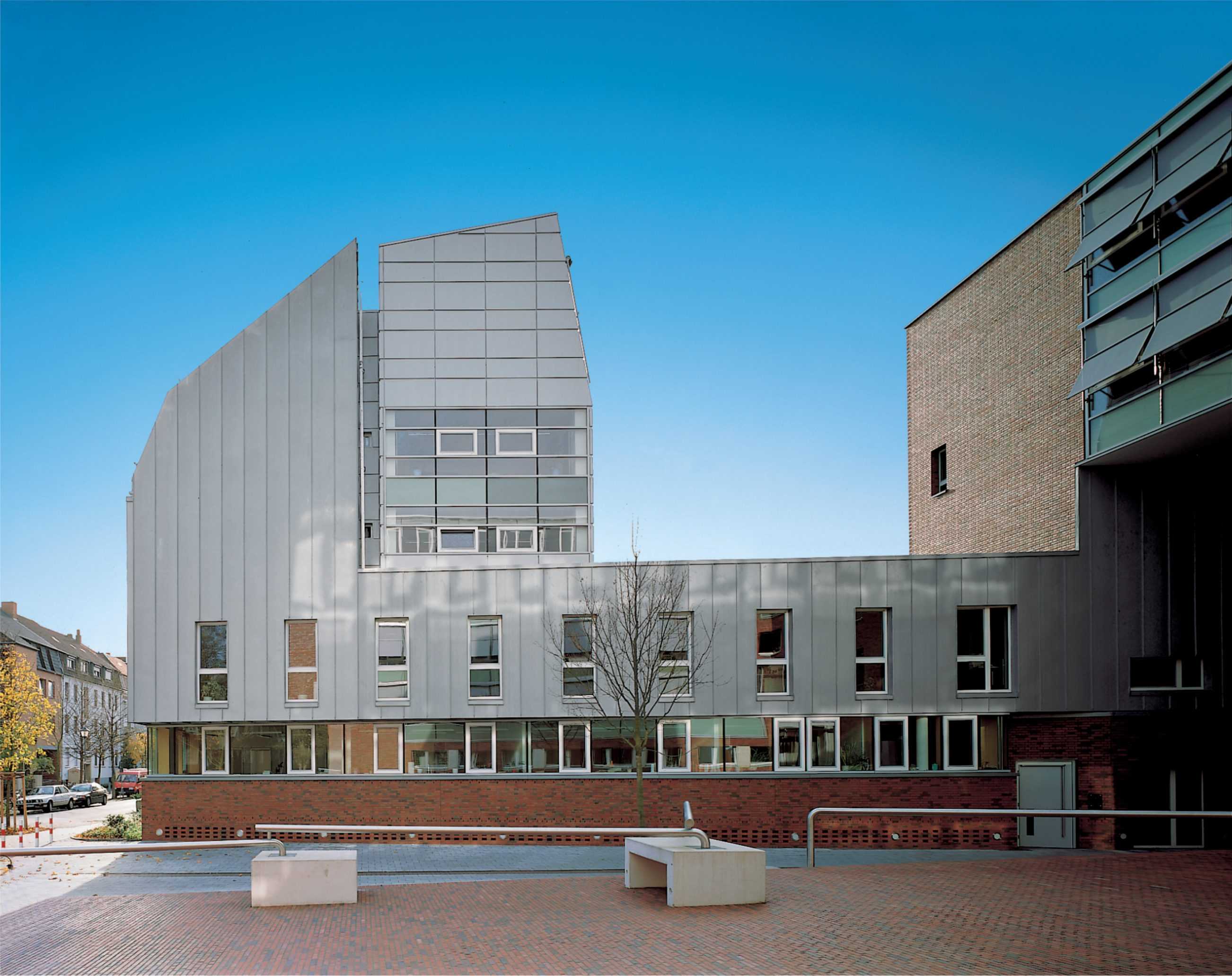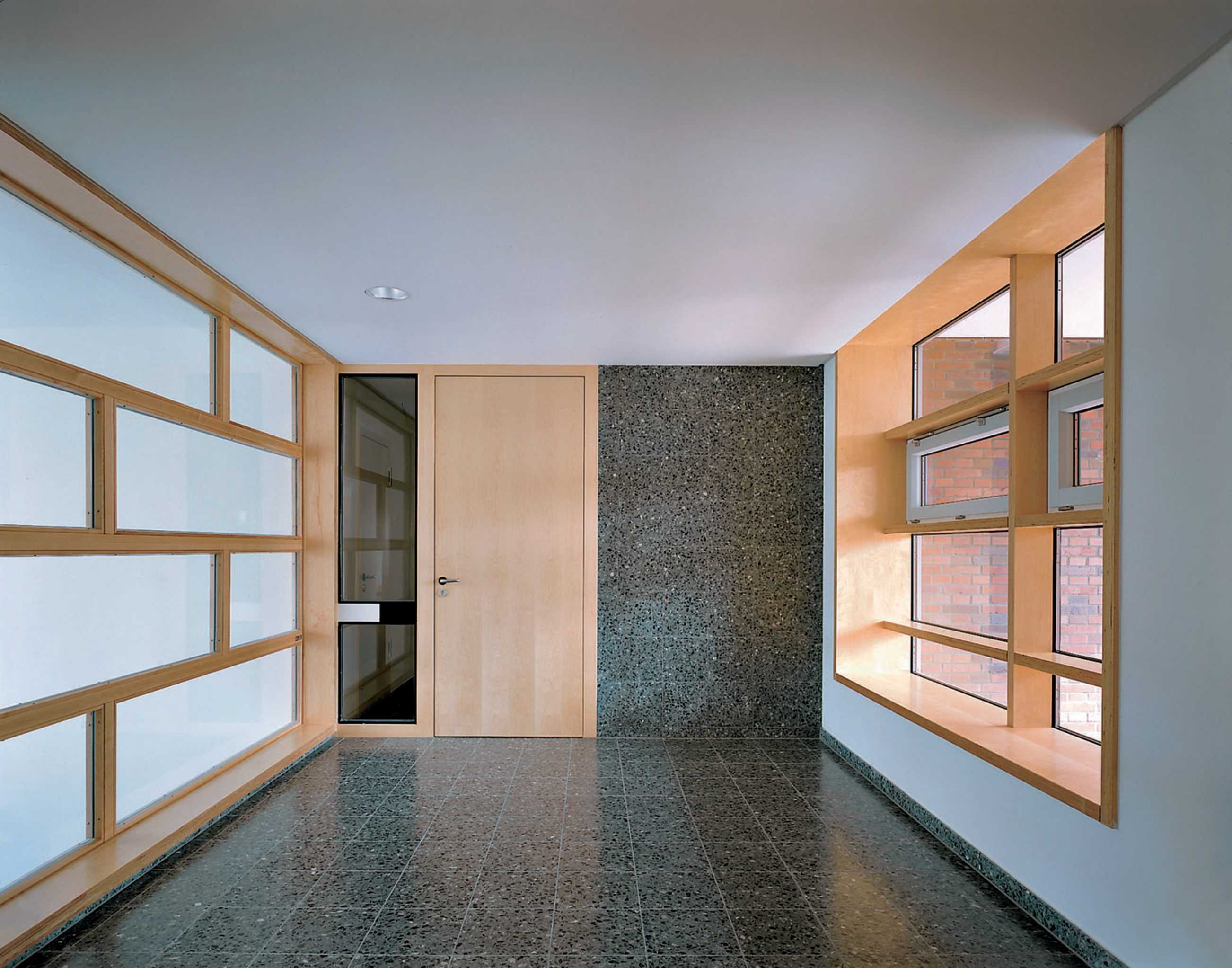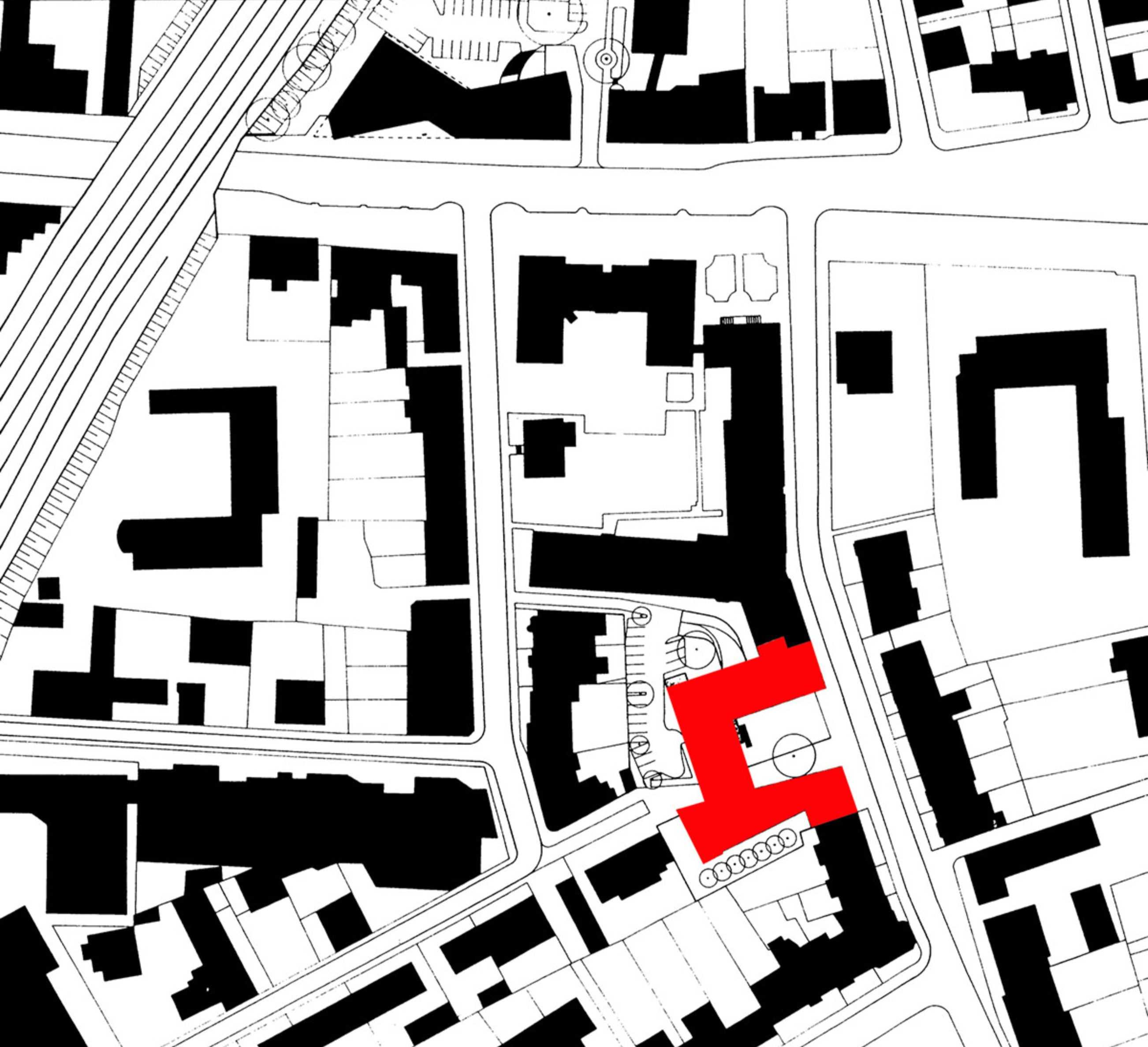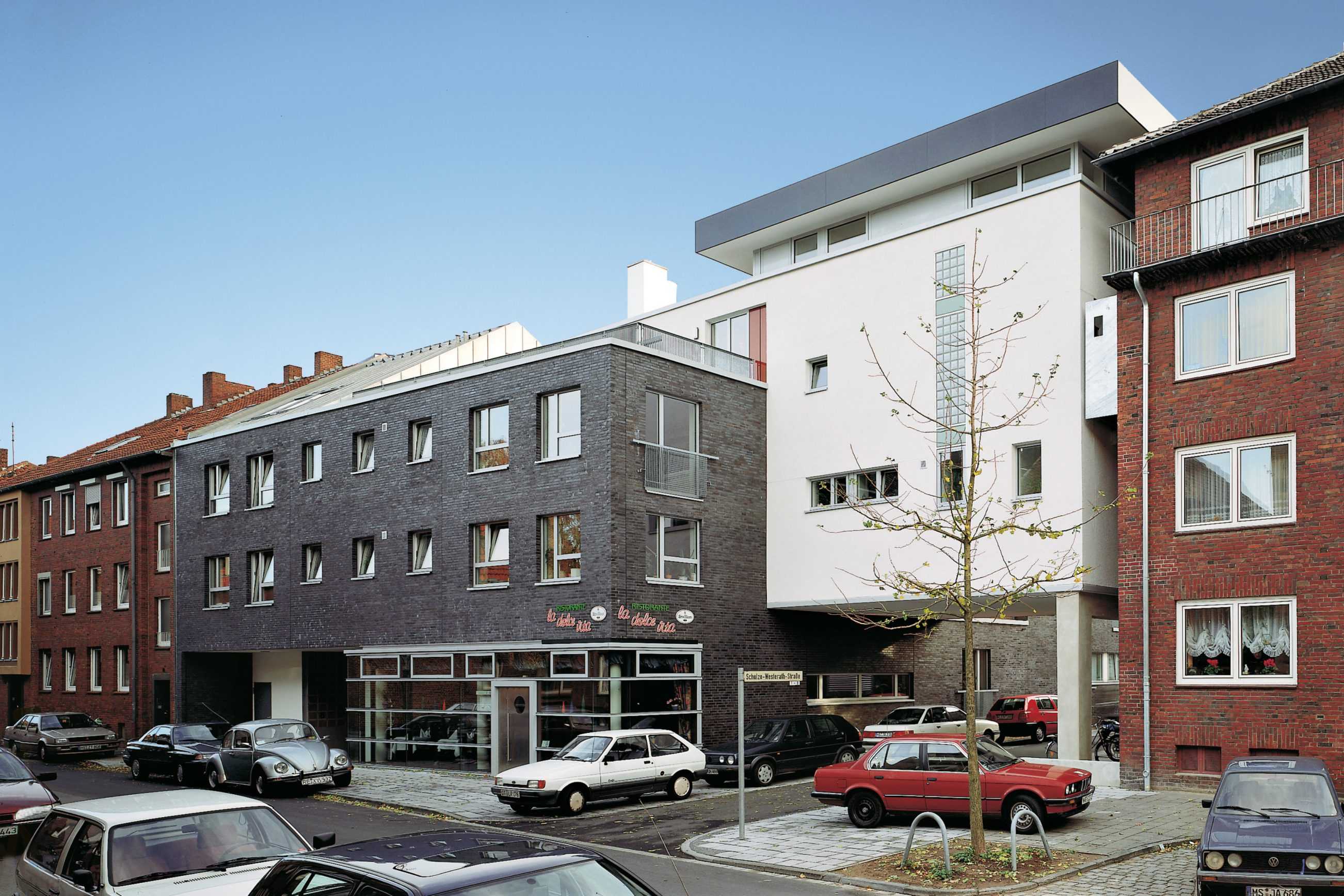
Bernhardstrasse
TYPOLOGY: Residential
COUNTRY: Germany
CITY: Münster
YEAR: 1997
GFA: 4.950 sqm
CLIENT: LVM Versicherungen
PHOTOS: © Christian Richters
A knitting together of street lines and block interior in a modest scaled residential district. The theme is more Vitruvius’ comoditas than grand or explicit architectural narrative. Street lines, precise boundaries between public and private realms are anchored with a solid dark, oil-fired, almost industrial and implicitly north German brick plinth. In contrast the upper floors in white plaster transcend this intentional massivity through their material and geometric abstraction. The two layers dovetailed together framing private terraces and necessary setbacks.
The 26 apartments are vertically ordered. Small units suitable for elderly occupants or studio apartments with garden below, the larger first floor apartments have generous balconies while the upper two floors are organised as maisonettes. An urbane facilitating of daily life is in the interiors and layout achieved with a reduced material palette – wood, stone, plaster.





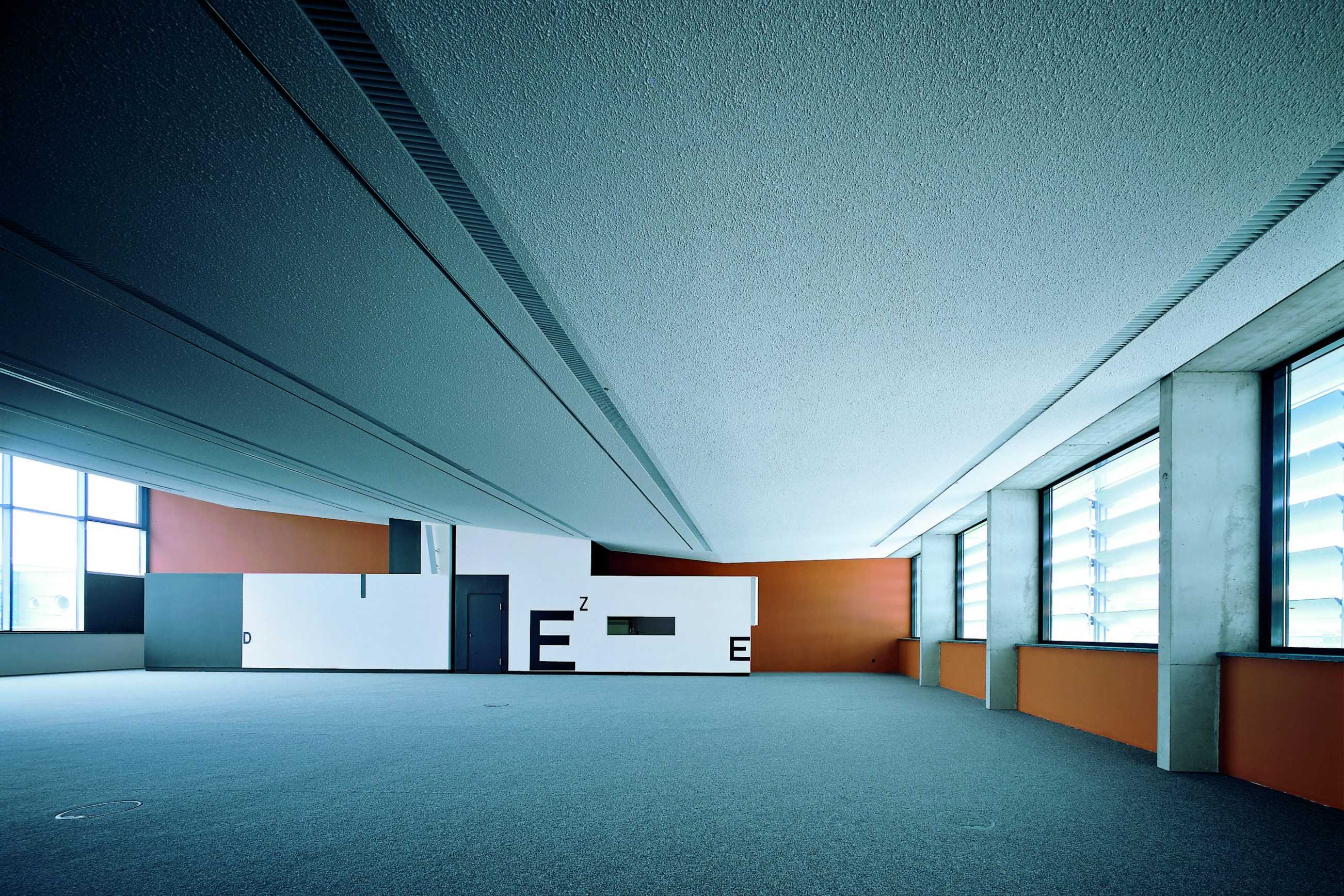
Dieze Training Centre
TYPOLOGY: Educational
COUNTRY: Germany
CITY: Castrop-Rauxel
YEAR: 1996
COMPETITION: 1994, First Prize
GFA: 3.000 sqm
CLIENT: GEWO, Castrop-Rauxel
PHOTOS: © Christian Richters
A branch of the Open University Hagen and a Women’s Retraining Centre – shared conference and seminar facilities. Anchor box plus geometric extensions. The alien conference element cantilevers acrobatically. Strict plan geometries evolve a three dimensional language of interlocking materials.


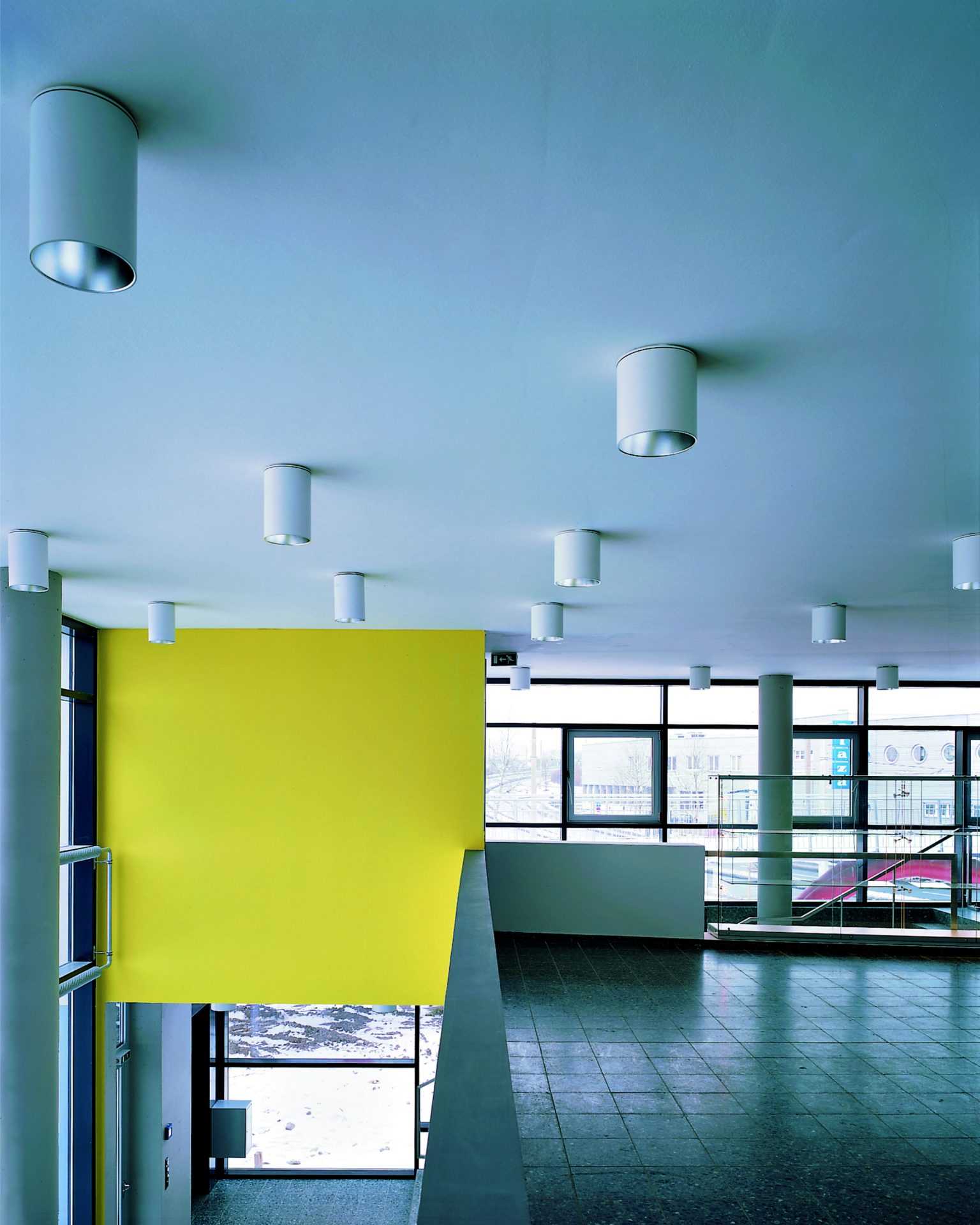





WLV Office Building
TYPOLOGY: Office
COUNTRY: Germany
CITY: Münster
YEAR: 1995
COMPETITION: 1992, First prize
GFA: 7.200 sqm
CLIENT: WLV
AWARDS: German Architecture Award 1996, commendation
PHOTOS: © Christian Richters
The reflective surface of the ‘dark green glazed’ brick animates a monolithic self-focusing form. An ambiguous surface alternating between the brilliance of the sky or the depths of black shadow. Mass is also the subject, a single building block in the urban fabric. A block further animated by the vectorial trajectory of the adjacent railway which instigates a façade curve and lean. A relatively simple slippage whose justification lies not in its formal but its tectonic resolution. Each brick course slips out one cm from the one supporting it. For the train traveller the WLV building is an event of a few seconds, its deflection perhaps only the effect of speed, its roof perhaps only temporarily hovering.
The three floors and 7.000 sqm of offices house a branch of local government that deals with the administration of psychiatric services. Shops on the ground and rooftop canteen-restaurant complete the sandwich. A specified planning module of 1.625 m results in a deep precast concrete fin on each axis, visible structure in unpainted concrete defining a window zone for heating, cable canals and glare blinds. From inside window frames disappear behind fins, to the south sun screens extend the internal ceiling line beyond the window. Systematised cellular offices are animated by contextual deflexions in the overall plan form, resulting in serpentine office strips, floating service islands, the ‘elastic plan’. Not high but low-tech is here and in the entire building thematizing, the simple, the well made, the long lasting.



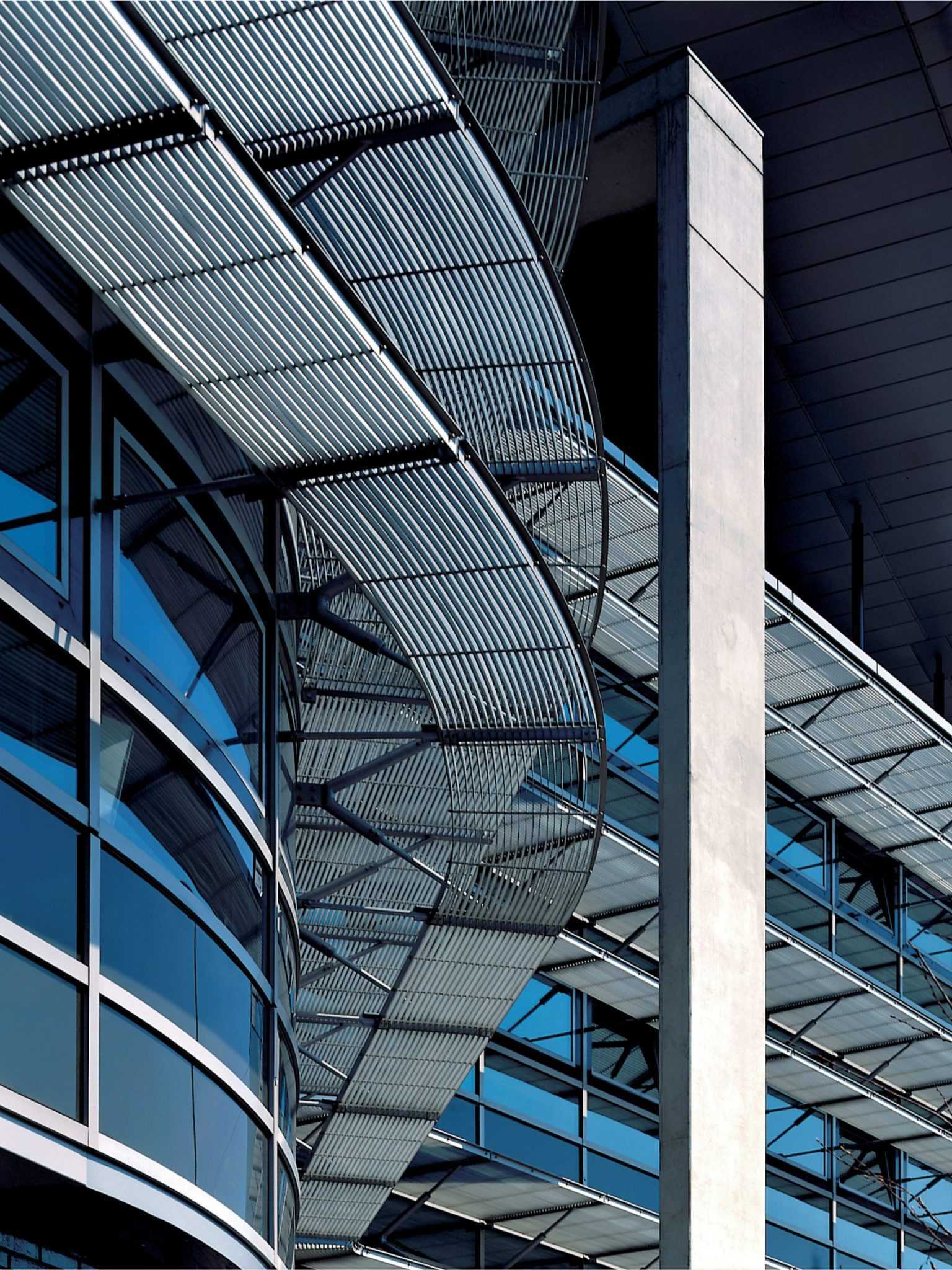




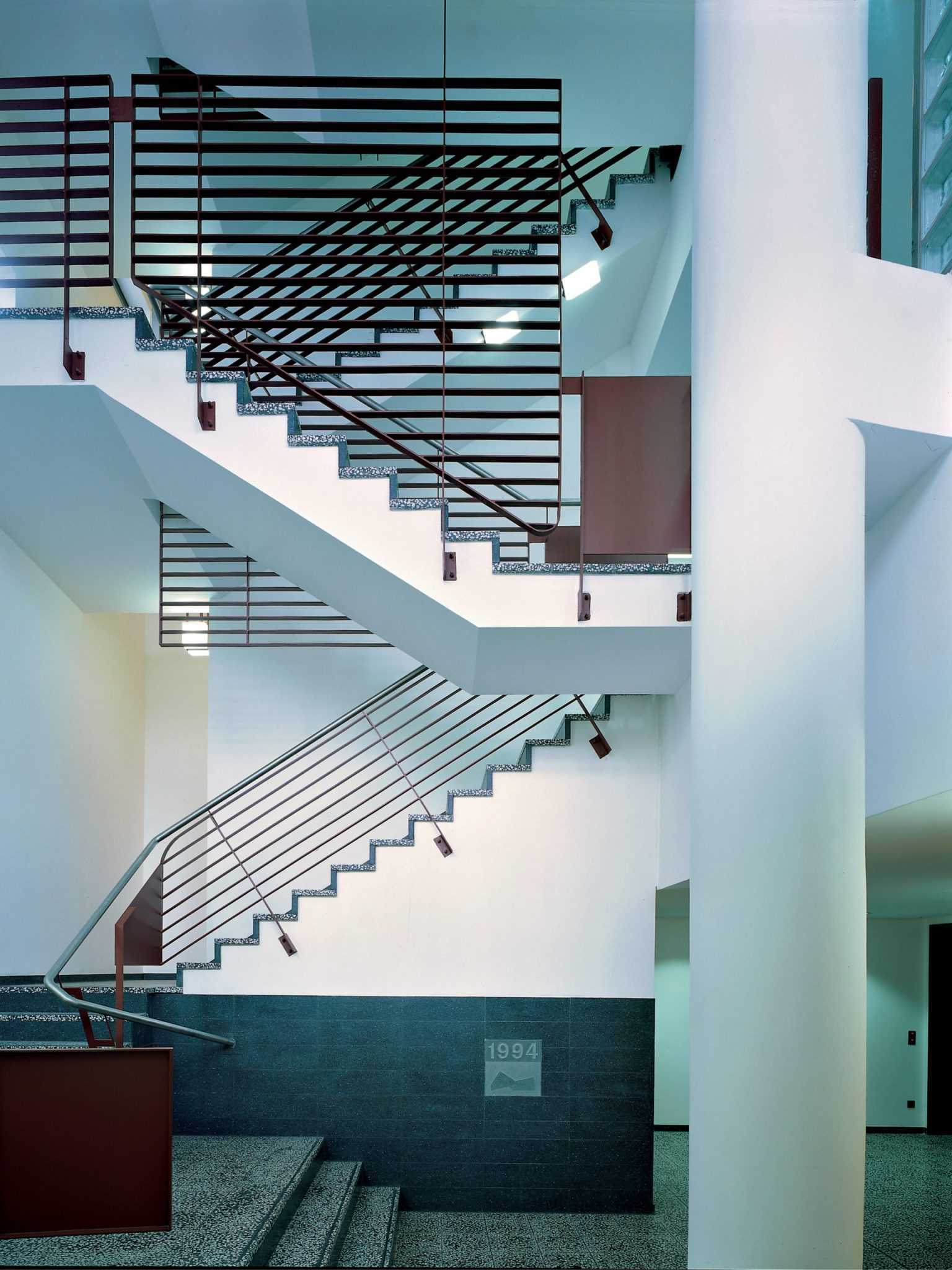




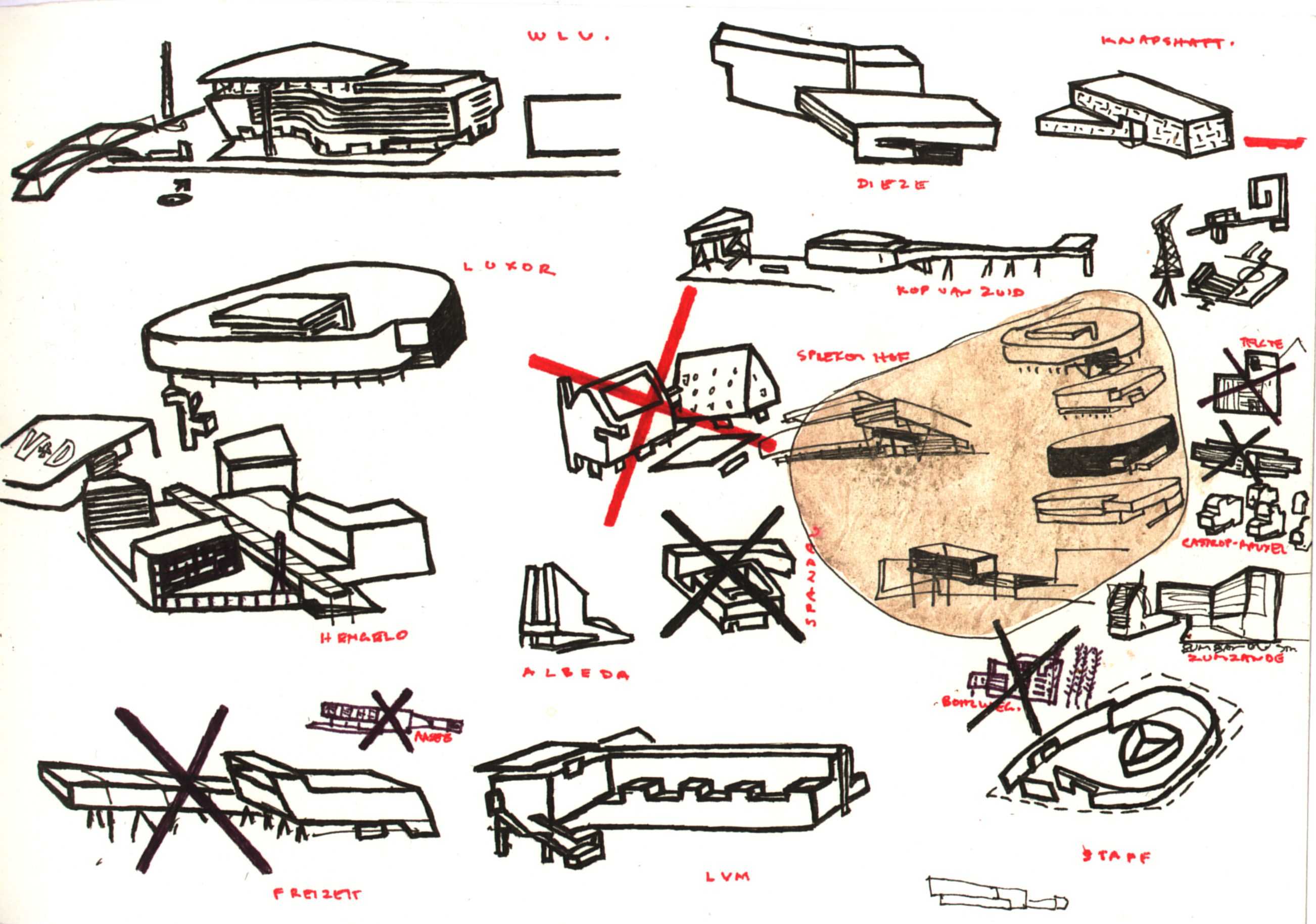
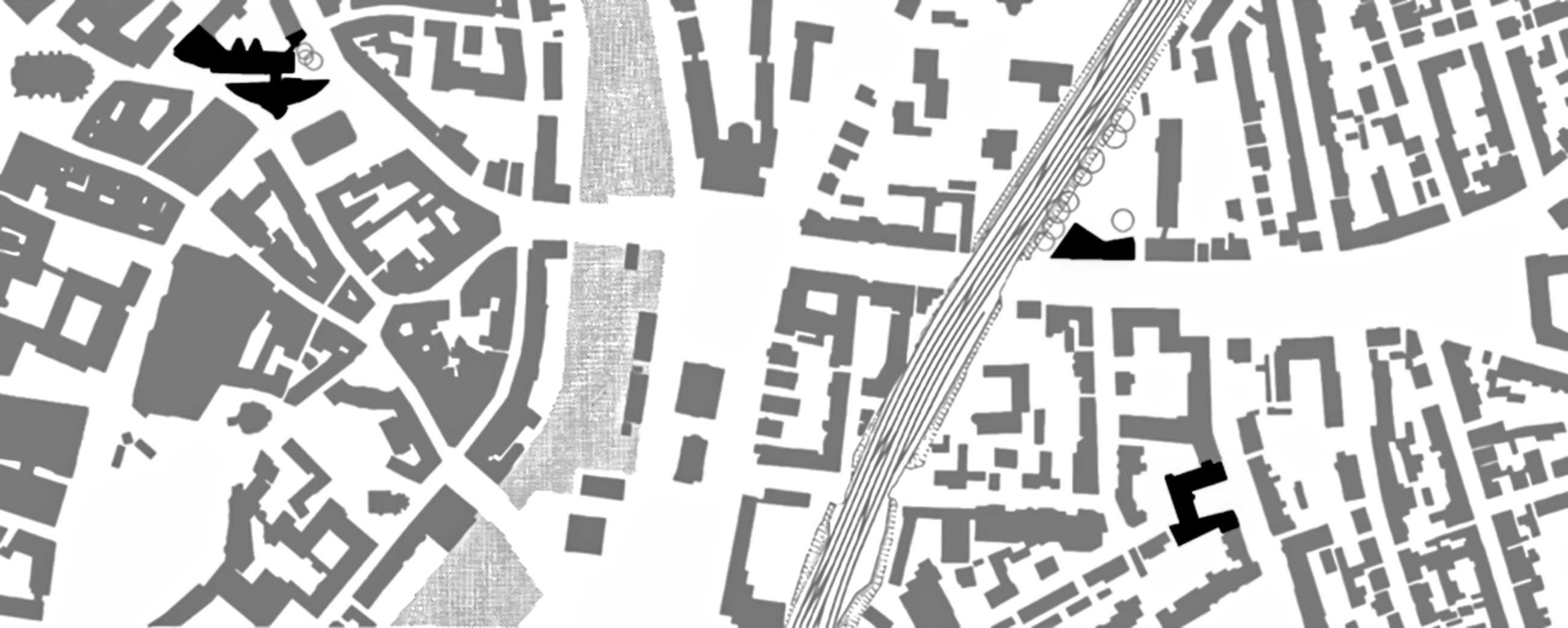
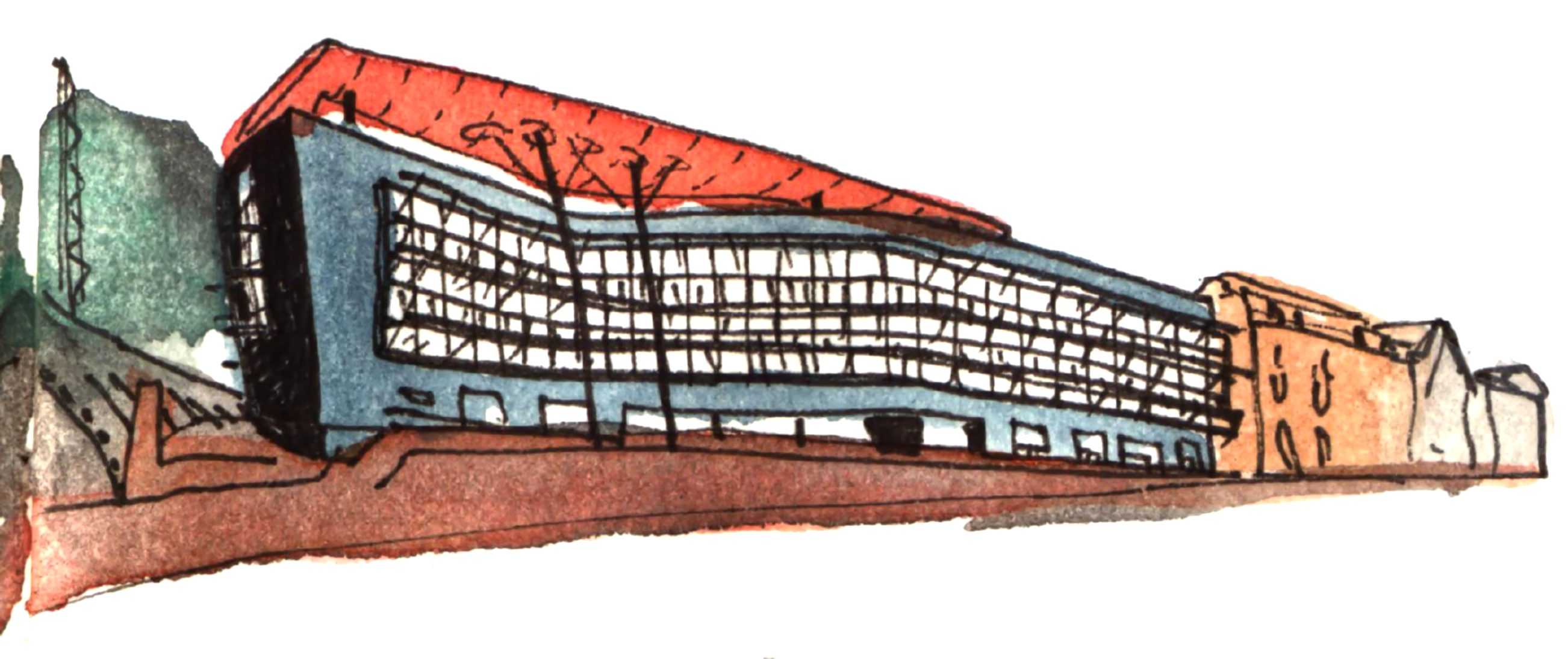
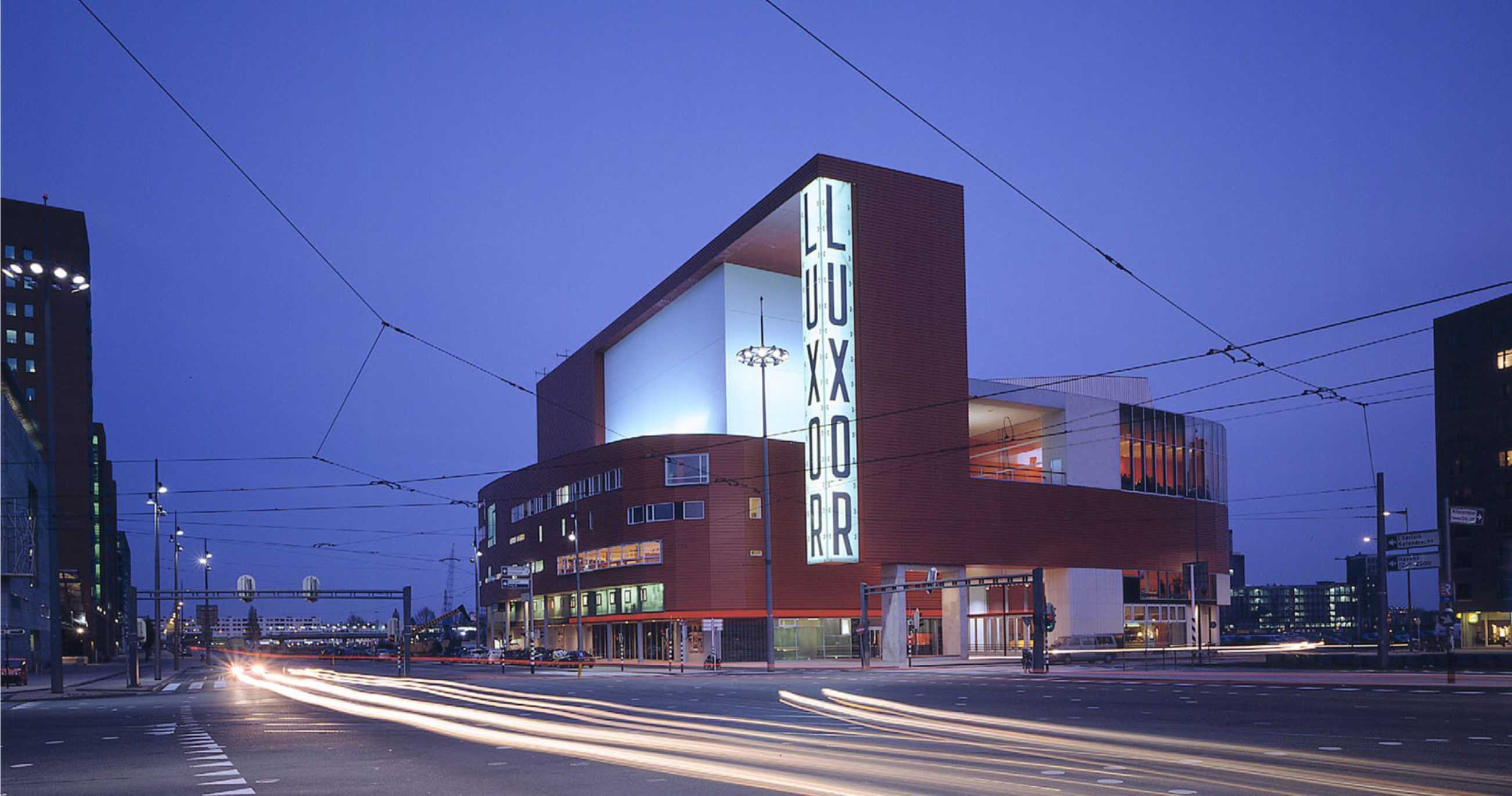
Luxor Theatre
TYPOLOGY: Cultural
COUNTRY: Netherlands
CITY: Rotterdam, Kop van Zuid
YEAR: 2001
COMPETITION: Competition 1996, 1st Prize
GFA: 24.000 sqm
CLIENT: City of Rotterdam
COLLABORATOR: Bureau Bouwkunde (local support office)
AWARD: Mies van der Rohe Award 2001 (Shortlist)
PHOTOS: © Christian Richters, © L5, © BOLLES+WILSON
The New Luxor Theatre faces both the Maas River and Rijn Harbour – A multiple orientation, a single wrapping facade, a 360° building. An internalised ramp allows three 18 m long trucks to park directly besides the first floor stage. The ramp roof provides an architectural promenade in the foyer. The Luxor auditorium seats 1500, a giant scaled musical instrument, a surprisingly ‘intimate room’. The Luxor facilitates with an appropriated spatial theatricality the well working of complex theatre logistics.
On the 11th of May 2011 BOLLES+WILSON’S Luxor Theatre in Rotterdam celebrated its tenth anniversary with a spectacular Gala show.
The evening also marked the retirement of Luxor director Rob Wiegman – the great Rob Wiegman without whom this building, this resounding and on-going cultural event would not have happened. Tributes abounded, speeches – emotional Actors, Performers, Politicians, Rotterdamers – Architects.

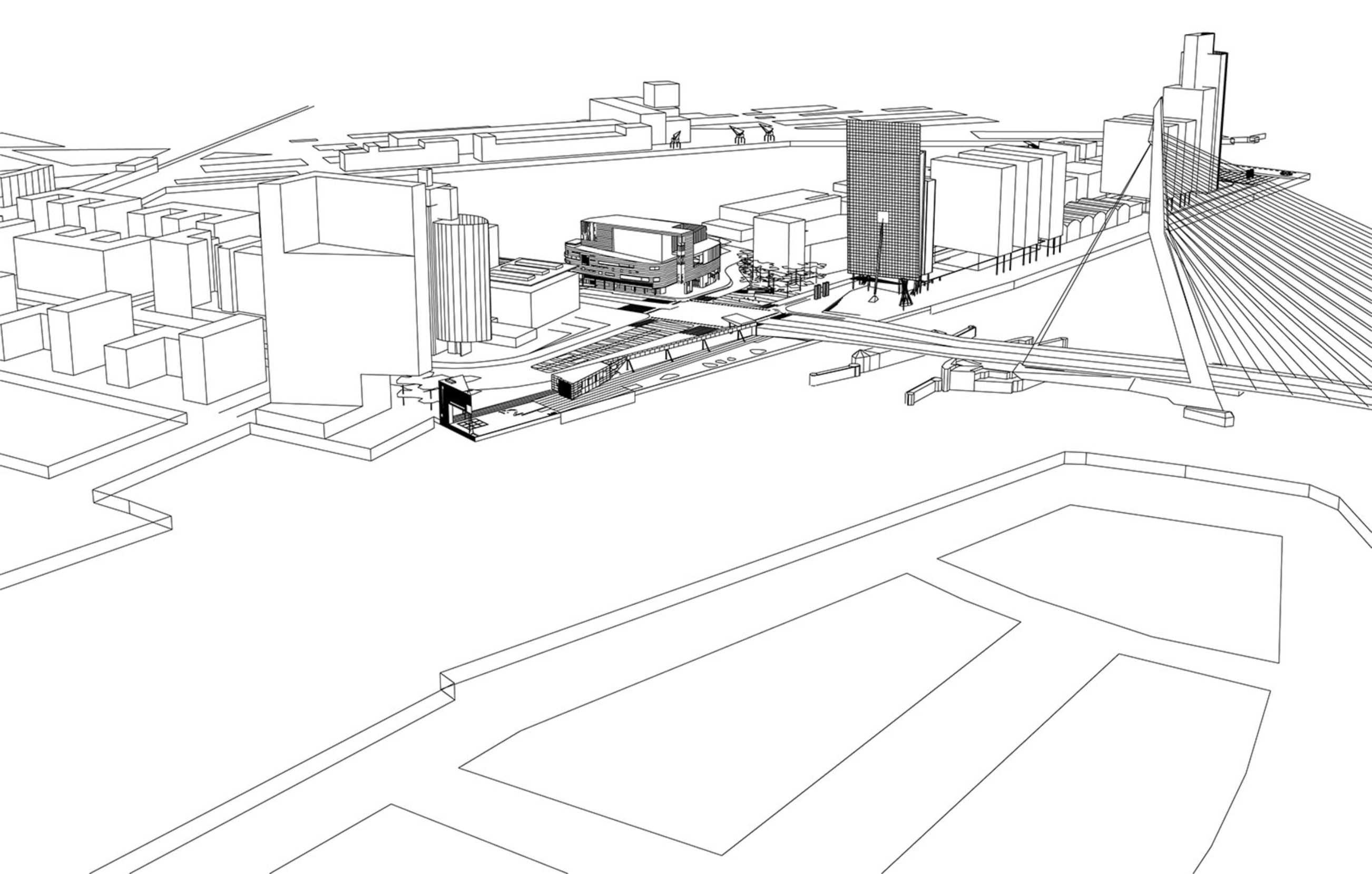






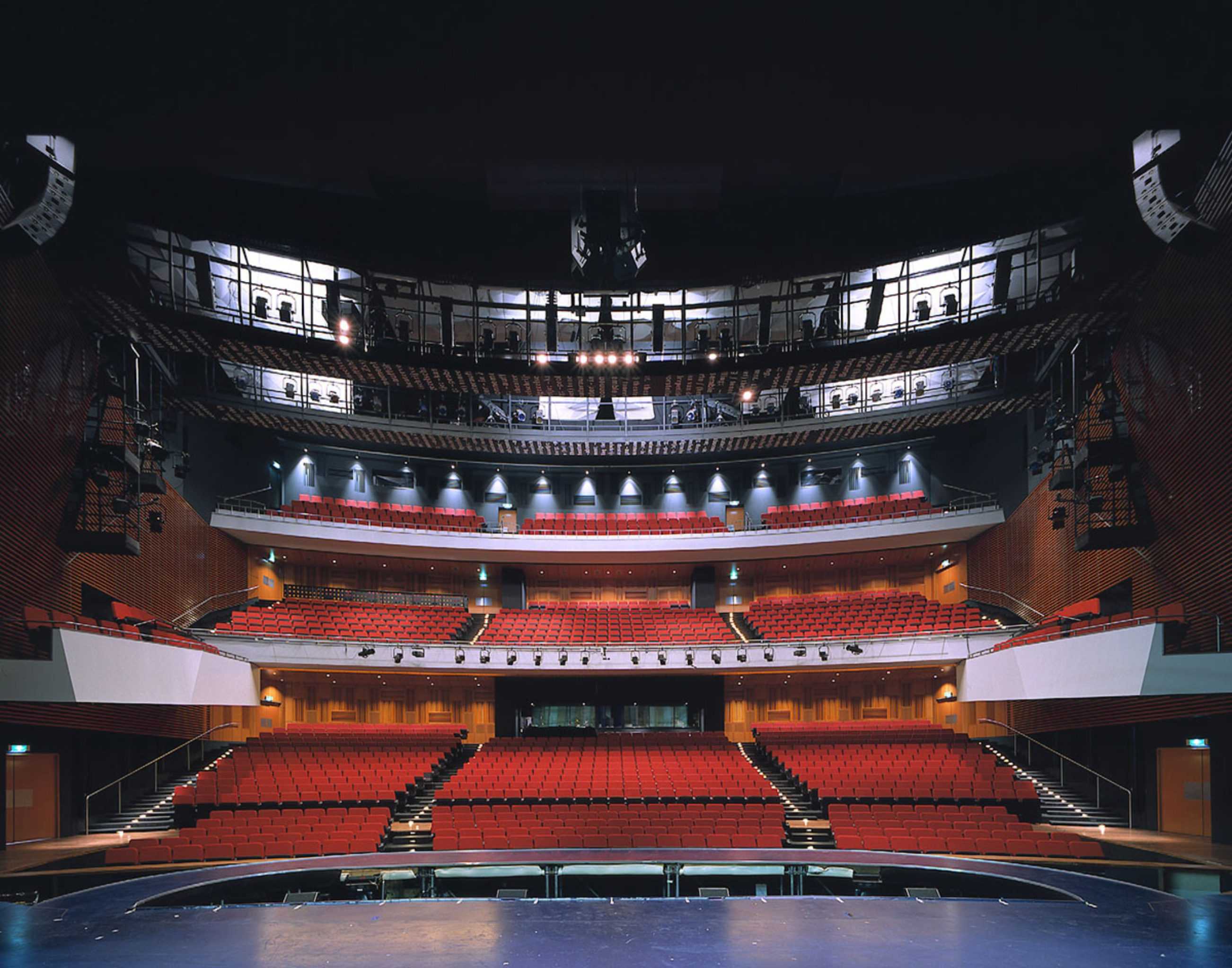






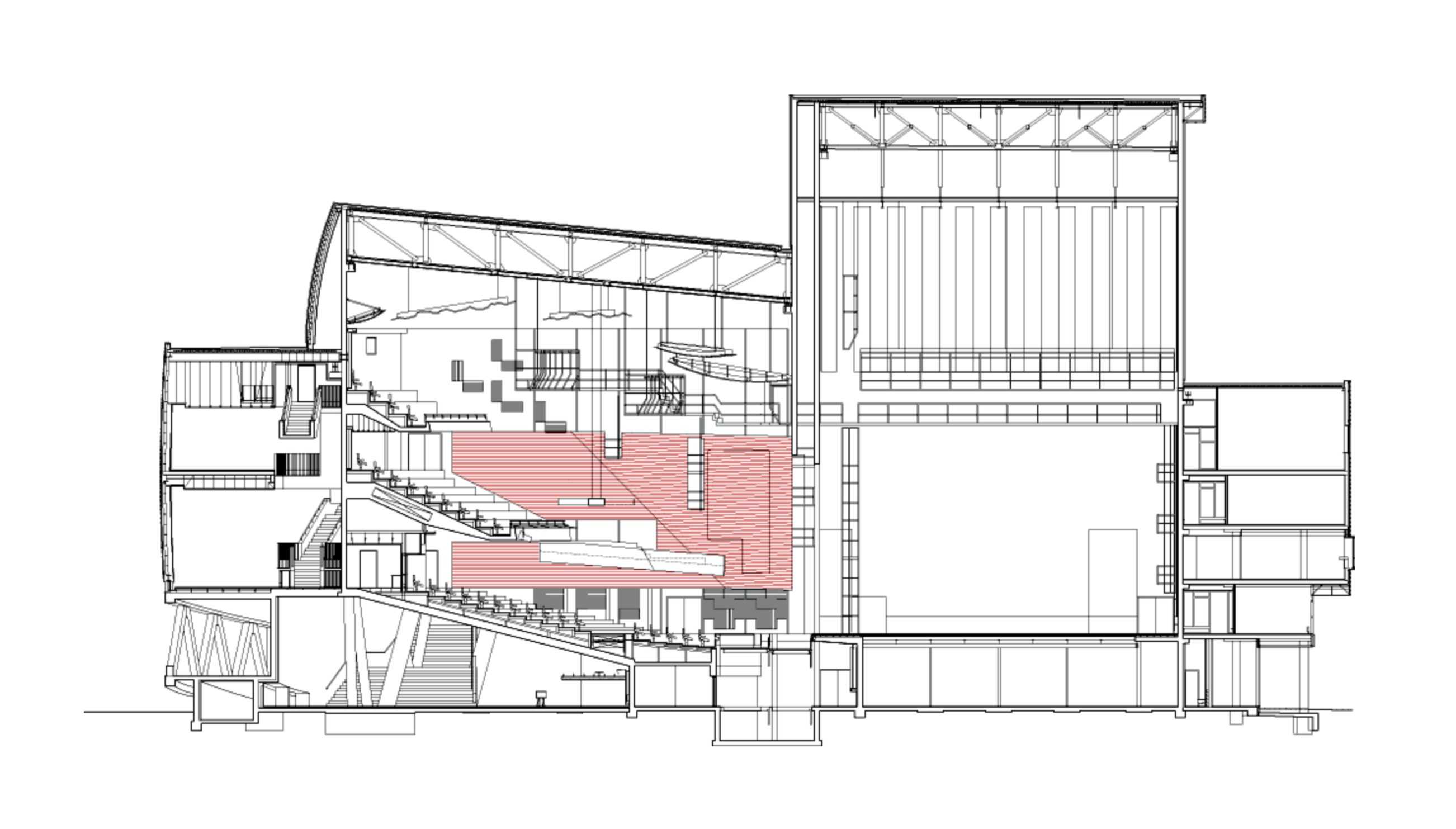
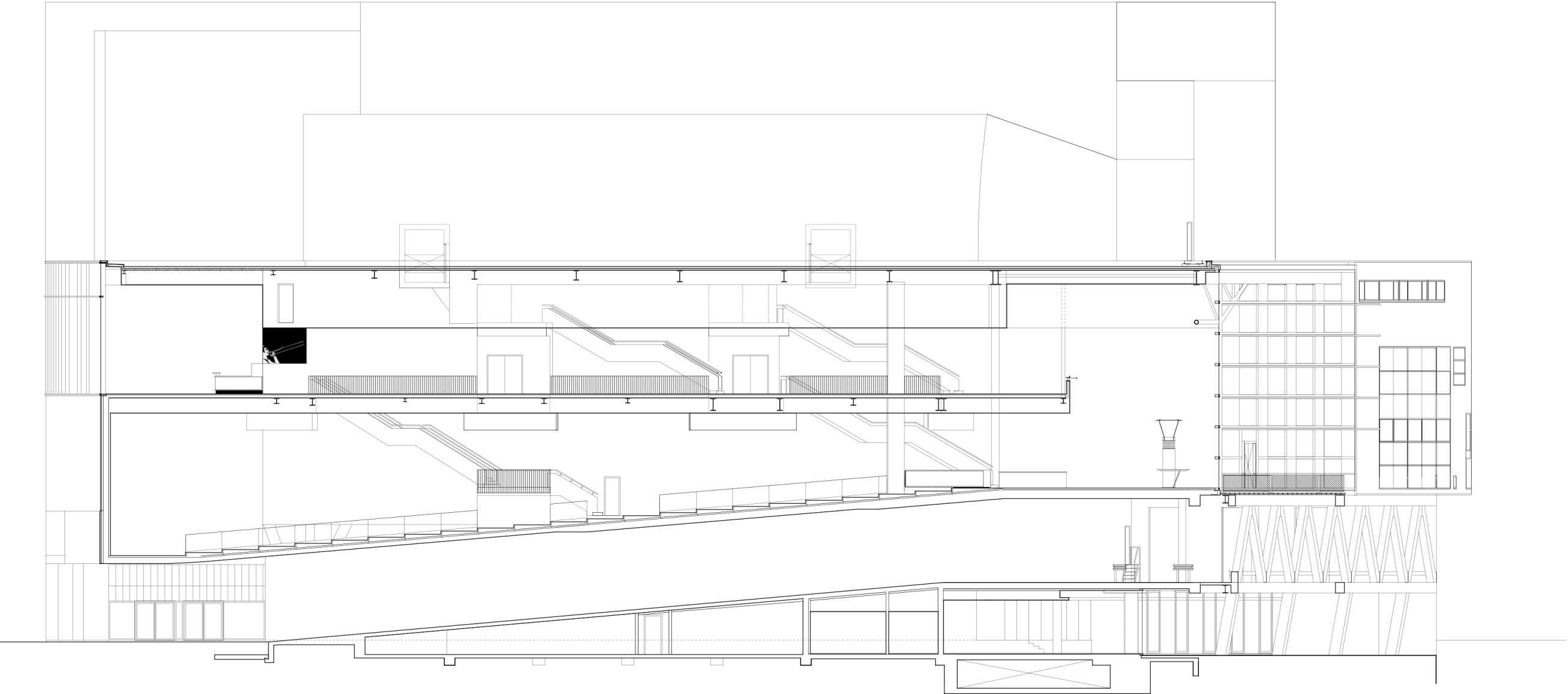
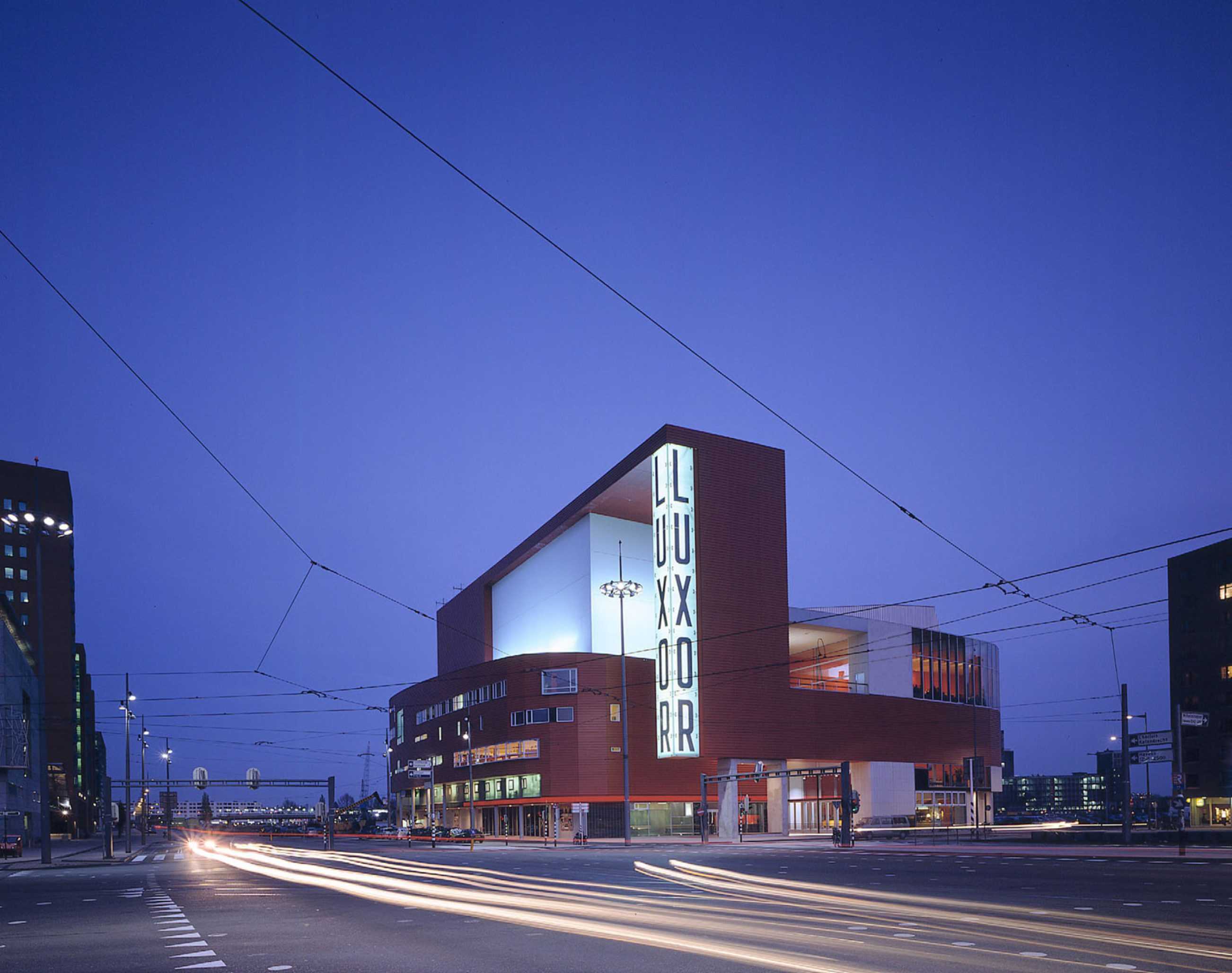
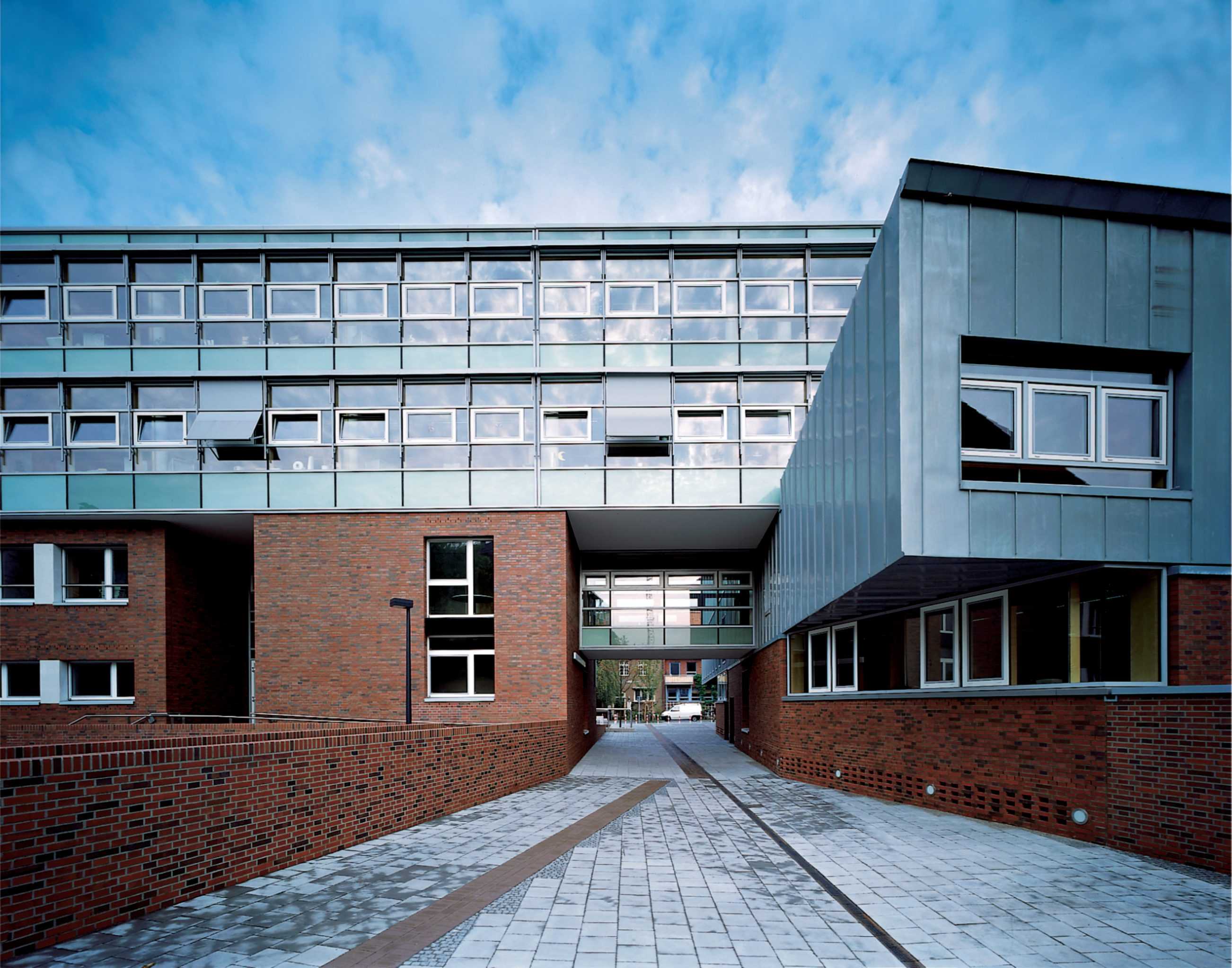
ZWK / WVK Office
TYPOLOGY: Office
COUNTRY: Germany
CITY: Münster
YEAR: 2000
PHOTOS: © Christian Richters
A building that inserts a new square in the plan of the City, in a zone of transition from monumental 19thcentury administration buildings to smaller scale row houses with no major urban frontage, but bisected by a public right of way (commuter bicycle route). The “U”-form of the new building frames a ramped square, scales change in stages. The bicycles punch a grand portal through the office facade. Cellular offices open through a glass facade supported on a frame of laminated timber giving the conventional offices a lightness and transparence.
The principle which animates this convention bound site and program is that of carefully detailing and choreographing everyday necessities – entrance, office layout, meeting rooms. The whole adds up to a clear and precise urban insert, sculptural in its form both object and container.
